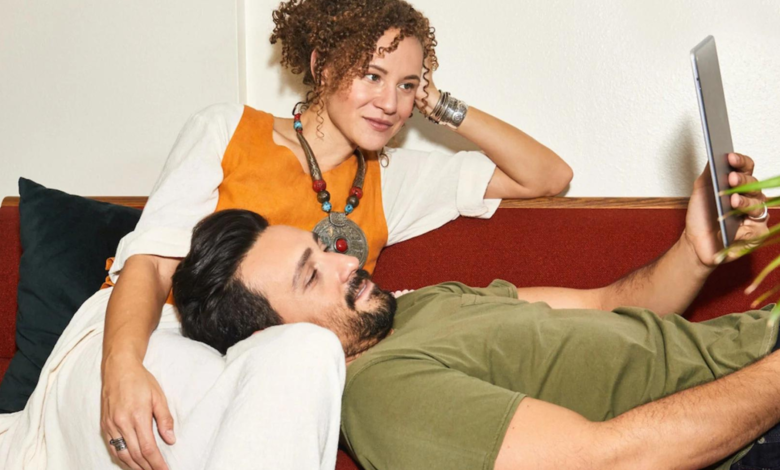Can You Be Double Licensed in LMHC and LMFT? Exploring the Dual Pathway

Introduction
Have you ever wondered if you can be double licensed in LMHC and LMFT? Well, you’re not alone! As the fields of mental health counseling and marriage and family therapy grow, so does the curiosity about dual licensure. Let’s dive into what it means to hold both licenses, the benefits, and the steps to achieve this professional milestone.
Understanding LMHC and LMFT
What is LMHC?
Licensed Mental Health Counselors (LMHC) focus on providing therapy to individuals dealing with various mental health issues, such as anxiety, depression, and trauma. They are trained to diagnose and treat mental health disorders, offering support through individual and group therapy sessions.
What is LMFT?
Licensed Marriage and Family Therapists (LMFT) specialize in helping couples and families navigate relational dynamics. They address issues like communication problems, infidelity, and family conflicts. Their training emphasizes systemic thinking, understanding how individual issues impact the broader family system.
The Path to Dual Licensure
Educational Requirements
To be double licensed in LMHC and LMFT, you need to meet the educational requirements for both fields. This typically involves obtaining a master’s degree in counseling, psychology, or a related field. Some programs offer dual tracks, allowing you to meet the requirements for both licenses simultaneously.
Key Points:
- Master’s degree in counseling or related field
- Dual track programs available
- Separate coursework and internships for each license
Supervised Experience
Both LMHC and LMFT licensure require supervised clinical experience. This means working under the supervision of a licensed professional to gain hands-on experience. Each license has specific hour requirements, which you must complete separately.
Supervised Experience Requirements:
- LMHC: 3,000 hours of supervised experience
- LMFT: 3,000 hours of supervised experience
Completing these hours can be a bit of a juggling act, but it’s totally doable with proper planning and time management.
Examination Requirements
To obtain licensure, you must pass the relevant exams for each profession. For LMHC, it’s typically the National Clinical Mental Health Counseling Examination (NCMHCE). For LMFT, the exam is usually the Association of Marital and Family Therapy Regulatory Boards (AMFTRB) exam.
Benefits of Being Double Licensed
Increased Job Opportunities
Being double licensed in LMHC and LMFT opens up a wider range of job opportunities. Employers often seek professionals who bring a diverse skill set to the table. With dual licensure, you can work in various settings, including private practice, hospitals, and community agencies.
Enhanced Skill Set
Having both licenses means you’re equipped with a broad spectrum of skills. You’ll be adept at individual therapy and have a deep understanding of family systems and relational dynamics. This versatility can enhance your effectiveness as a therapist.
Professional Credibility
Dual licensure can boost your professional credibility. It shows your commitment to your field and your willingness to go the extra mile. Clients and employers alike may see you as a more knowledgeable and dedicated professional.
Challenges of Dual Licensure
Time and Financial Investment
Pursuing dual licensure requires a significant investment of time and money. You’ll need to complete the educational and supervised experience requirements for both licenses, which can be time-consuming and costly.
Balancing Different Theoretical Approaches
LMHC and LMFT often emphasize different theoretical approaches. Balancing these can be challenging but also enriching. It requires flexibility and a willingness to integrate diverse perspectives into your practice.
Steps to Achieve Dual Licensure
Step 1: Choose the Right Educational Program
Select a master’s program that offers the coursework required for both LMHC and LMFT licensure. Look for programs with dual tracks or the flexibility to take additional courses.
Step 2: Complete Supervised Experience
Find supervised positions that allow you to accrue hours for both licenses. This might mean working in different settings or under supervisors who are licensed in both fields.
Step 3: Prepare for and Pass Exams
Study for and pass the required exams for both licenses. Consider joining study groups or taking preparatory courses to increase your chances of success.
Step 4: Apply for Licensure
Submit your applications for both licenses. Ensure you meet all the requirements and provide all necessary documentation.
FAQs About Dual Licensure
Q: Can you be double licensed in LMHC and LMFT in all states? A: Licensure requirements vary by state, so it’s essential to check the specific regulations in your state. Some states may have more stringent requirements than others.
Q: Is it worth the effort to pursue dual licensure? A: Many professionals find it worthwhile due to the increased job opportunities, enhanced skill set, and professional credibility it provides. However, it requires a significant investment of time and resources.
Q: Can I complete the supervised experience for both licenses simultaneously? A: It depends on the specific requirements of your state and the settings in which you work. Some hours may count towards both licenses, while others may not.
Q: How do I manage the different theoretical approaches of LMHC and LMFT? A: Flexibility and a willingness to integrate diverse perspectives are key. Continuing education and supervision can also help you balance these approaches effectively.
Q: What are the long-term career benefits of being double licensed? A: Long-term benefits include a broader range of job opportunities, the ability to work with a diverse client population, and increased professional credibility.
Conclusion
Pursuing dual licensure in LMHC and LMFT is a challenging but rewarding endeavor. It opens up a world of opportunities, enhances your professional skills, and boosts your credibility. While the journey requires dedication and hard work, the benefits make it a worthwhile pursuit. If you’re passionate about helping individuals and families navigate life’s challenges, dual licensure could be the perfect path for you. So, can you be double licensed in LMHC and LMFT? Absolutely! With the right plan and determination, you can achieve this professional milestone and make a significant impact in the field of mental health.



